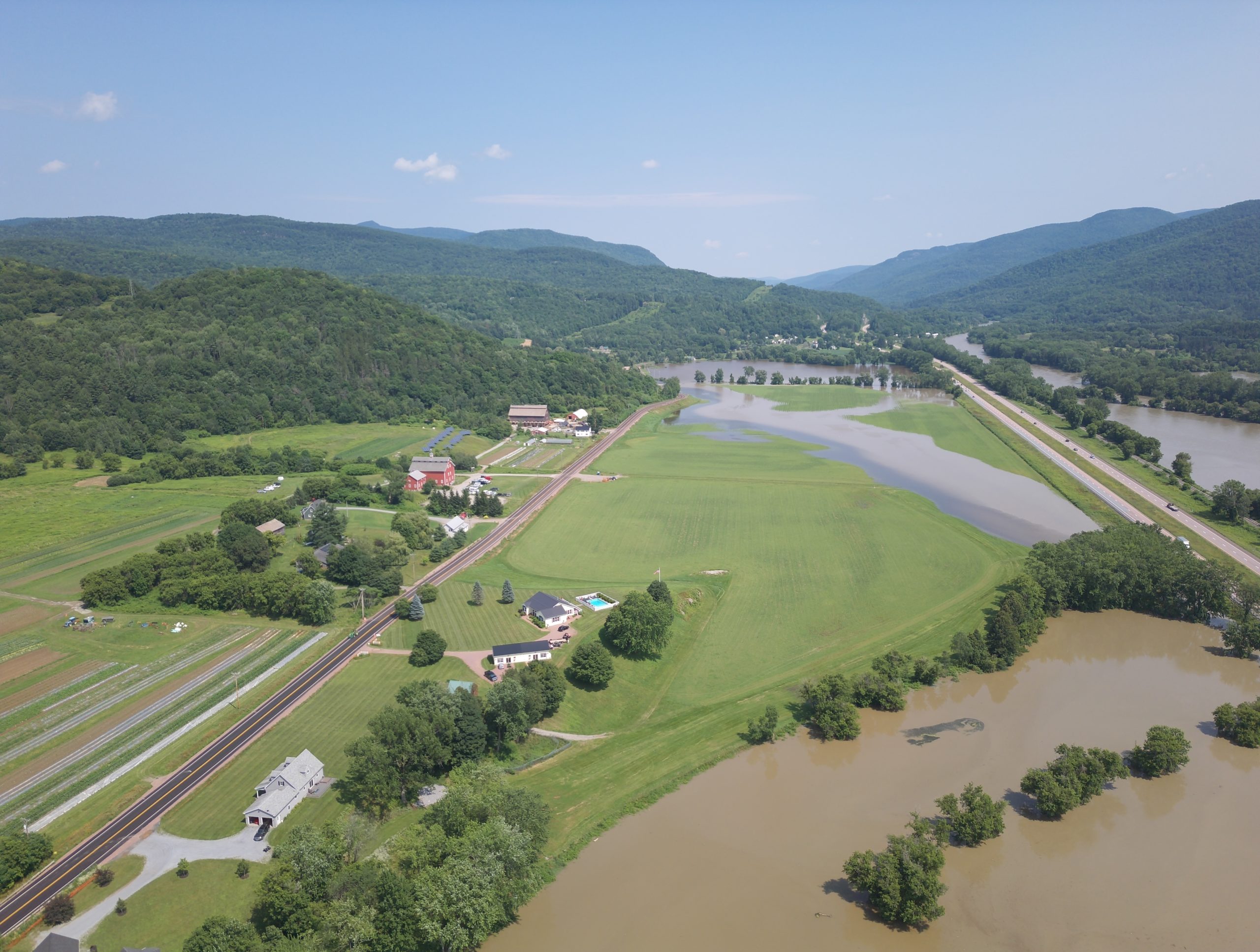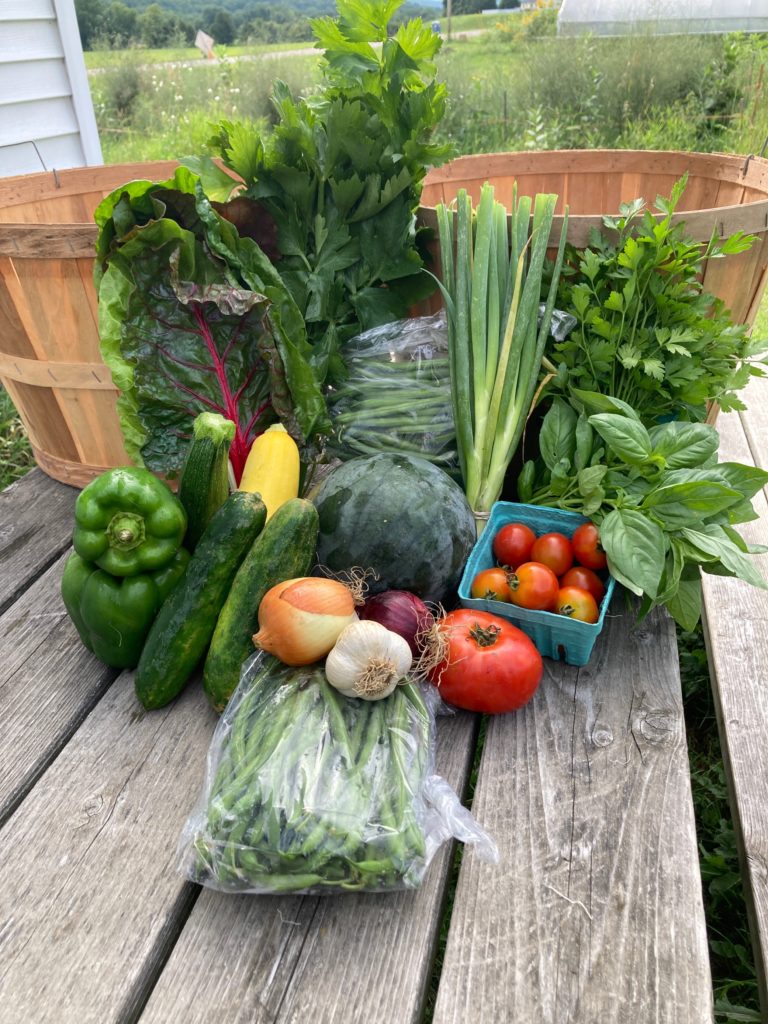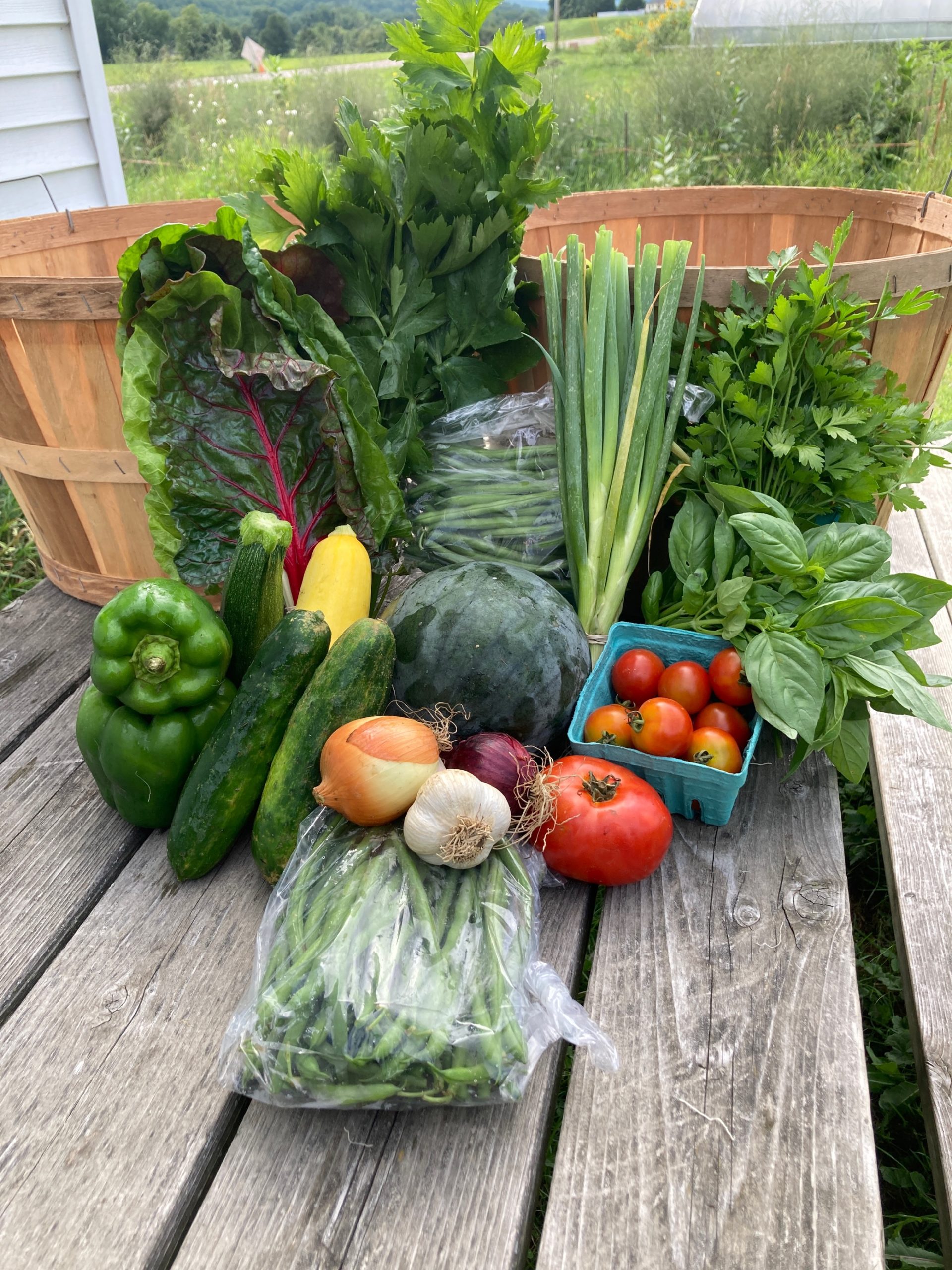Responding and adapting to severe weather, staff and crews make changes proactively and, when needed, reactively.
The VYCC community is grateful that most of our production fields are upland enough from the Winooski River to avoid major flooding. 2023 was a year when many farms lost their crops. VYCC crews grew and harvested 67,000 pounds of food – just 3,000 pounds fewer than 2022.
The fields at VYCC were fully saturated in July, threatening crops and especially root vegetables. Camping crews returned to VYCC as the rains approached to be on safe and high ground. While they waited for roads to reopen, Conservation and Farm Crew Members teamed up to harvest all our garlic before it was lost. They also harvested beans, washed cabbage, worked with chickens, and packed Health Care Shares.
Did you know? Garlic is a 9-month crop, which means you cannot grow another succession in the same season if something goes awry. At the time of flooding, our garlic was just ready to harvest! Health Care Share recipients have consistently requested more garlic in their shares, and we are so glad we were able to deliver this favorite to our community.
Farm crews then delivered 390 Health Care Shares on July 13 by creatively routing around multiple road closures, and resumed full delivery of 415 Health Care Shares on July 20.


Adjustments on the Farm – the meaning of ‘sustainable agriculture’
Professional Food & Farm Program staff are attuned to changing weather patterns and strategies to improve the farm’s resilience to periods of saturating rain and drought. Our sloped farm is experiencing increased erosion during heavy rain events, especially on freshly formed beds where the soil has been significantly disturbed by tilling the soil with the tractor.
This spring, the team is transitioning some fields from a tractor-based row cropping system to a human-scale, intensive market-gardening approach. New beds will be 100 feet long and 30 inches wide. Beds shaped this spring will be managed primarily with hand-labor.
Drawing from published research and other farms’ experience, we anticipate the new beds will result in reduced erosion, reduced use of diesel fuel, increased soil health, and an improved participant experience.
